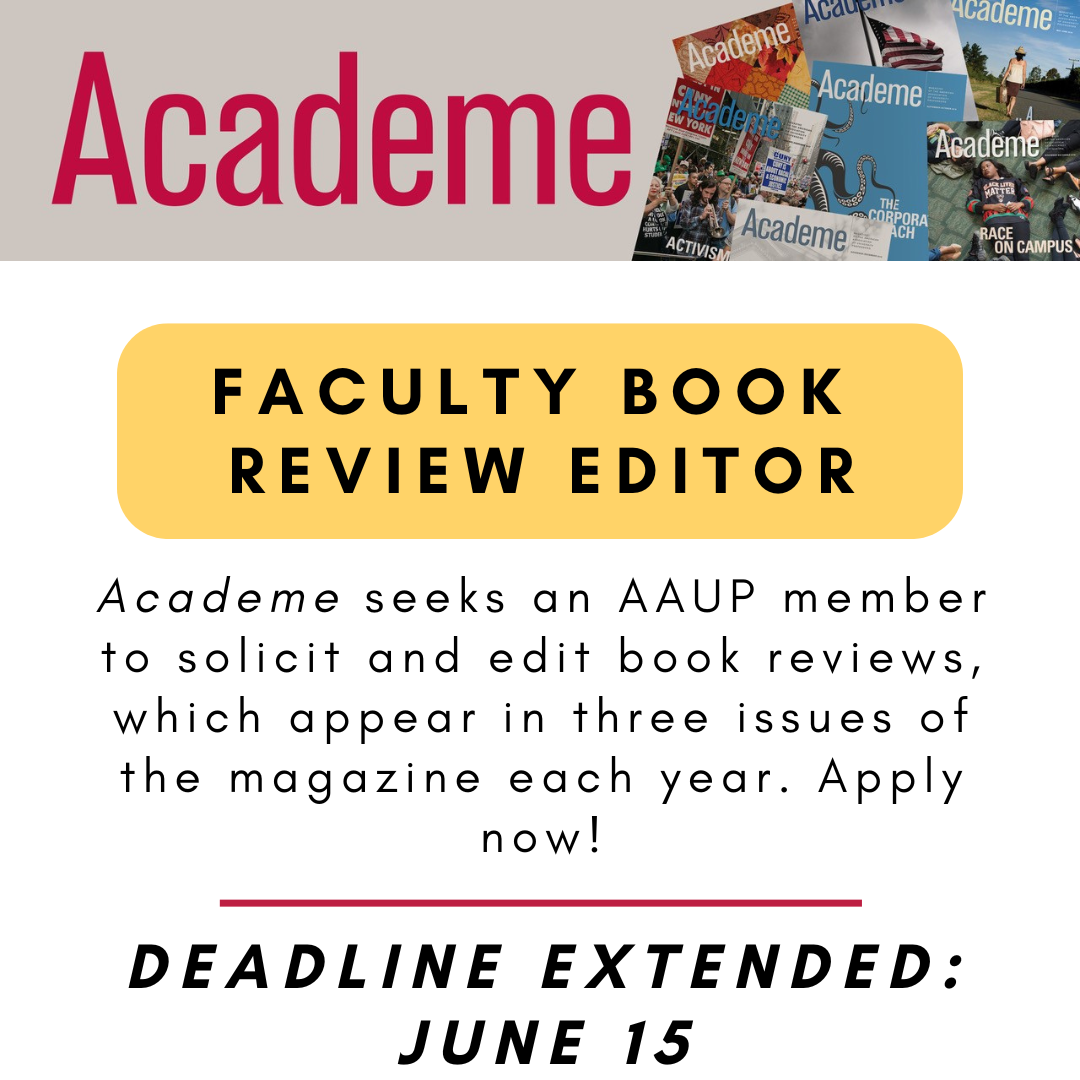- About
- Programs
- Issues
- Academic Freedom
- Political Attacks on Higher Education
- Resources on Collective Bargaining
- Shared Governance
- Campus Protests
- Faculty Compensation
- Racial Justice
- Diversity in Higher Ed
- Financial Crisis
- Privatization and OPMs
- Contingent Faculty Positions
- Tenure
- Workplace Issues
- Gender and Sexuality in Higher Ed
- Targeted Harassment
- Intellectual Property & Copyright
- Civility
- The Family and Medical Leave Act
- Pregnancy in the Academy
- Publications
- Data
- News
- Membership
- Chapters
From the General Secretary: Countering The Fear
There is a great deal of fear in American higher education today. It stems from an economic environment in which the basic conditions of employment are threatened, from job opportunity and security to retirement and health-care benefits. It stems from a political environment in which the work of professionals is being attacked by political and religious groups that demonize proponents of particular social and scientific perspectives and by policy makers who wish to expand student access even as they work to reduce higher education to workforce development. And it stems from stratified professional environments that cultivate status anxiety and assimilation.
The forms that the fear takes vary by employment status. Faculty members working in contingent positions fear that they are a few student complaints or one capricious academic administrator away from nonrenewal. Assistant professors fear that they are a few senior professors or one administrator from a negative decision in their up-or-out year. Tenured associate professors fear that they are a few full professors or an academic administrator from not gaining full entry into the club. And full professors fear that they are one administrator from being punished through decisions about salaries, resources, or programs. Graduate student employees and postdoctoral fellows, meanwhile, are subject to similar fears that an arbitrary decision by a supervisor could cause them to lose teaching or research appointments or block the approval of their academic work. Finally, academic professionals fear a hostile climate, retaliation, and bullying in their daily lives and worry that their programs will be punished or that a supervisor will summarily dismiss them without good cause or due process.
In such a climate, there is too little academic freedom, too little of the open exchange of ideas that is at the core of what education should be. There is too little of the genuine deliberation that is at the heart of shared governance. And, for all of us who work in higher education, there is too little freedom to fulfill our potential and to serve the public trust. For in a climate of fear, we self-censor: we lie low, don’t make waves, and just try to survive.
To counter the fear, we need to change the conversation. The climate of fear is premised on a politics of scarcity that sets groups of employees against one another. The conversation is about identifying prospective winners and losers, about positioning ourselves to move up in status.
We need to focus more on effectively positioning ourselves to address challenging social, environmental, economic, and technological problems. If we put a moratorium on our status fixation, we can, with current resources (for the budgets of the vast majority of institutions are growing), work together to build a future in which our institutions are more attuned to their professional and social responsibilities. In the process, we need to reclaim our daily lives, in relation not only to supervisors and administrators, but also to ourselves.
Members of the AAUP’s Committee on Academic Professionals recently discussed these matters, which we characterized as “the fear factor.” I find it interesting that academic professionals—who often are all too invisible to professors—made visible one of the most fundamental challenges to all professionals in colleges and universities. In response to the climate of fear, the committee will be developing an online survey for information that will enable us to define empirically, name conceptually, and challenge politically the existing working conditions and experiences of academic professionals, partly as a way of beginning to explore these matters for college and university employees more broadly.
Despite the current climate, individuals and groups do rise up. They do speak out. And they do win. That will be the story of the Committee on Academic Professionals. That is the story of the dozens of new AAUP chapters that are emerging. That is the story of our organizing campaigns. And that is the story of our Association. The AAUP was created nearly a century ago by challenging the inexorable as unacceptable and defining an alternative, by questioning and providing alternatives to what at the time were presumed to be the necessary corollaries of industrial society, by charting a future for the academy that envisioned the core values of our work and our stewardship of the public trust. Today, we must take up the challenge and fashion our own story.





